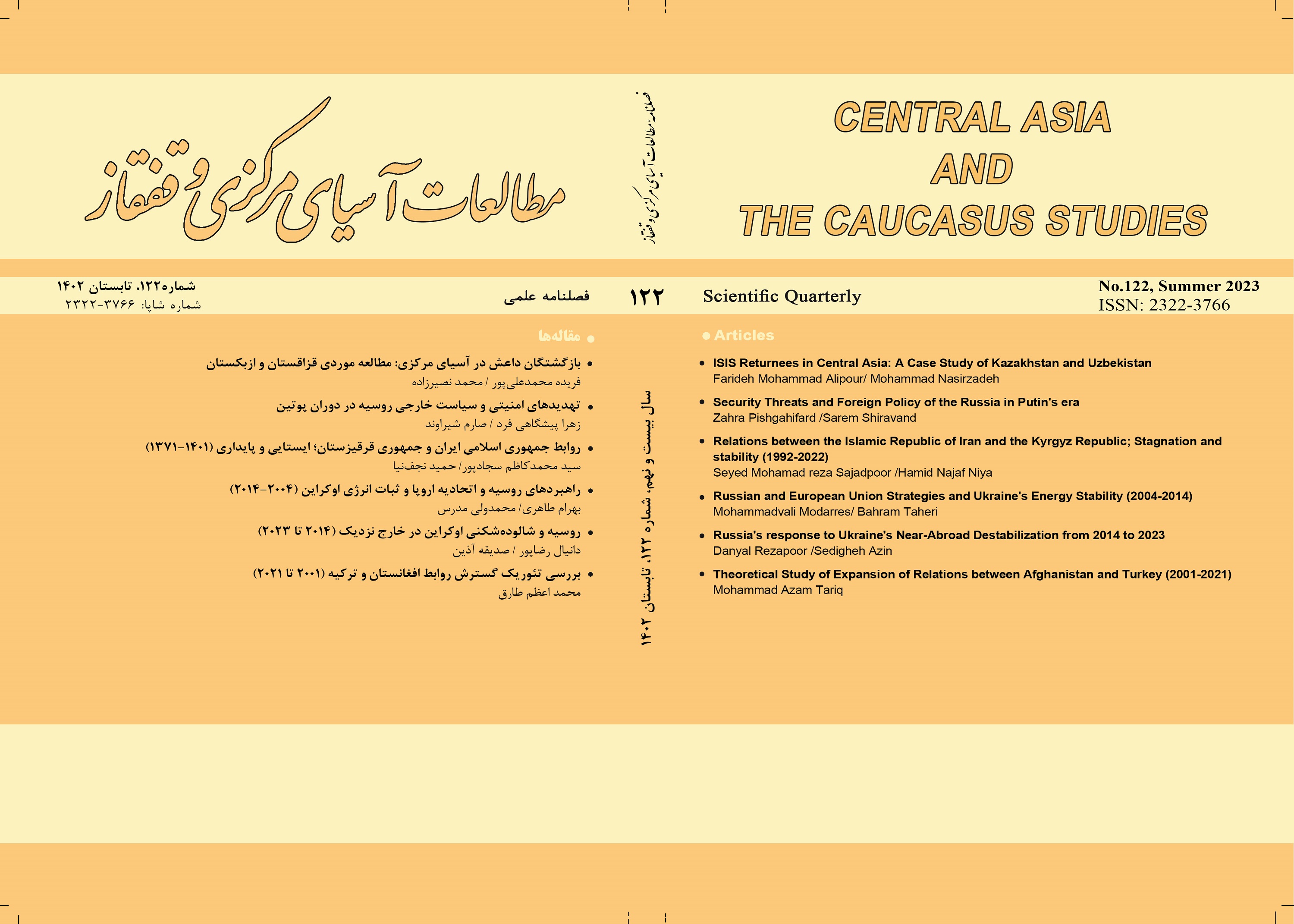Document Type : Research Paper
Abstract
Following the arrest of women and children by the Syrian Democratic Forces who had joined the ISIS terrorist group, the return of these people to their countries of origin was deemed an important issue in the fight against terrorism. While most European countries refused to accept them, Kazakhstan and Uzbekistan began to repatriate them. The current study seeks to address the question “How has the rehabilitation of ISIS women and children in Kazakhstan and Uzbekistan affected these people`s identities?” The hypothesis has been studied utilizing the Actor-network theory. This hypothesis has been tested: it has made it feasible to reinvent the identity of these individuals by placing women and children back from ISIS in a network of new social links. According to the findings of the study, the rehabilitation of these people in a network of social relations, as well as the use of the capacities of rehabilitation centers, schools, family, and neighborhood as translation mediators, has caused these individuals to reflect on their identity, rethink their social identity, and, as a result, successfully integrate in the society. Research results show that the rehabilitation of these people in the network of social relationships and the use of the capacity of rehabilitation centers, schools, families and neighborhoods as translation intermediaries has made women ISIS female and child returnees reflect on their identities and identities. Thereby rethinking their social identity and in a process of successful integration. In these countries, homeland adaptation and recovery activities as well as basic measures have been implemented individually with special emphasis on spiritual, psychological, ideological and family support, with government support in cases such as restoration of civil status, periodic financial support, and fight against social exclusion and the psychological distress that accompanies training for new professions such as translation, accounting and tailoring.
Keywords

